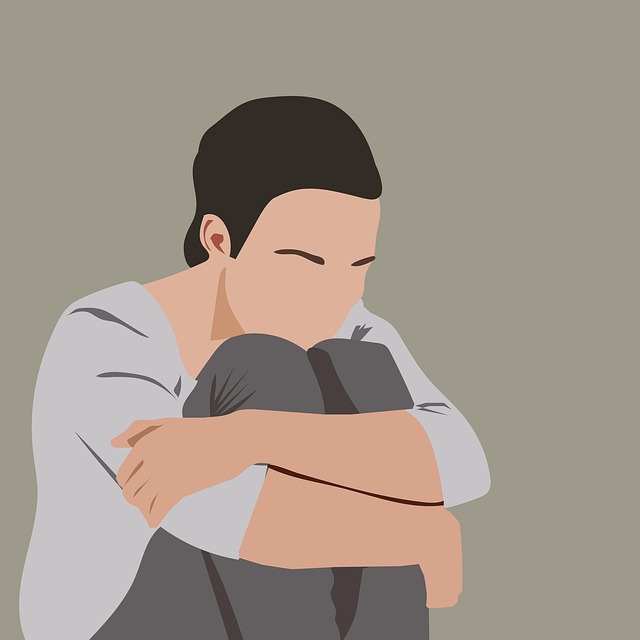In a fast-paced world, teaching children emotion regulation is vital for their development and well-being. Boulder Child Abuse Therapy plays a key role by empowering kids with techniques to understand and express feelings healthily, building self-esteem and emotional resilience. Through mindfulness exercises, open communication, and evidence-based practices, they foster self-awareness and emotional intelligence, helping children navigate emotions, build strength from setbacks, and thrive in all areas of life. Boulder Child Abuse Therapy also offers resources for parents, promoting proactive mental health through holistic approaches.
Emotion regulation techniques are essential tools for children to navigate their feelings and develop healthy coping mechanisms. This article explores the significance of teaching kids emotional control, offering practical strategies that parents and educators can implement. We delve into effective methods to help young minds manage emotions, with a special focus on Boulder Child Abuse Therapy’s role in fostering these skills. Understanding emotion regulation is key to supporting children’s mental well-being and personal growth.
- Understanding Emotion Regulation: Why It Matters for Children
- Practical Techniques for Teaching Kids to Manage Their Emotions
- The Role of Boulder Child Abuse Therapy in Implementing These Strategies
Understanding Emotion Regulation: Why It Matters for Children

In today’s world, teaching children about emotion regulation is more crucial than ever. It forms a vital part of their overall development and well-being, especially in places like Boulder Child Abuse Therapy where helping young minds navigate emotions is a key focus. Understanding and managing emotions effectively is a powerful tool that enables kids to cope with various challenges and stressors they may encounter. By teaching them emotional regulation techniques, we empower children to make sense of their feelings, express them healthily, and develop resilience.
This process helps foster self-esteem improvement as children gain a deeper understanding of themselves and learn to respond to situations mindfully. It encourages emotional well-being promotion techniques that can prevent the development of more severe mental health issues later in life. Resilience building is another significant outcome; when kids know how to regulate their emotions, they are better equipped to handle difficult experiences and setbacks, ensuring they bounce back stronger.
Practical Techniques for Teaching Kids to Manage Their Emotions

Teaching children to manage their emotions is a vital skill that empowers them to navigate life’s challenges with resilience and self-awareness. In Boulder Child Abuse Therapy, professionals often employ practical techniques that help kids understand and regulate their feelings effectively. One such method is encouraging children to identify and label their emotions. By teaching them to recognize the physical sensations associated with different emotions, they can start to differentiate between anger, frustration, or fear. This simple practice fosters self-awareness, enabling young individuals to take the first step towards managing these intense feelings.
Additionally, mindfulness exercises tailored for kids are powerful tools in crisis intervention guidance. Simple breathing techniques and guided visualizations help children calm down during moments of heightened emotion. Incorporating these stress reduction methods into daily routines can significantly improve their ability to handle stressful situations, boosting their overall emotional well-being. Furthermore, promoting open communication allows children to express their emotions safely, fostering an environment where they feel heard and understood, which is crucial for building self-esteem improvement over time.
The Role of Boulder Child Abuse Therapy in Implementing These Strategies

Boulder Child Abuse Therapy plays a pivotal role in teaching and implementing effective emotion regulation techniques for children. Therapists at this institution are trained to help young individuals understand, manage, and express their emotions healthily. Through tailored therapy sessions, they guide kids in developing coping strategies that can significantly enhance their mental wellness. Using evidence-based approaches, therapists incorporate activities like journaling and mindfulness exercises into the guidance process, fostering self-awareness and emotional intelligence from a young age.
The Mental Health Education Programs Design at Boulder Child Abuse Therapy goes beyond individual therapy sessions. They offer comprehensive resources and tools for parents and caregivers to support children’s emotional well-being at home. This holistic approach ensures that emotion regulation techniques become deeply embedded in daily routines, contributing to proactive depression prevention measures. By combining professional guidance with practical strategies, the therapy center equips children with the skills needed to navigate their emotions, build resilience, and thrive in various aspects of life.
Emotion regulation is a vital skill for children to develop, and with the guidance of professionals like Boulder Child Abuse Therapy, these techniques can be effectively taught. By understanding the importance of emotion regulation and implementing practical strategies, parents and caregivers can foster healthier emotional development in children. Boulder Child Abuse Therapy’s expertise plays a crucial role in navigating this process, offering tailored support and resources to help young individuals manage their emotions constructively.














